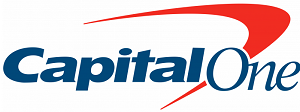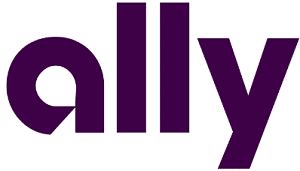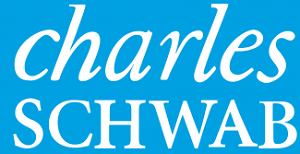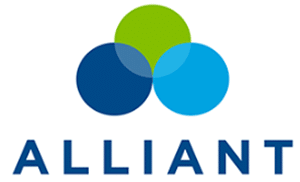Editorial Note: We earn a commission from partner links on Doughroller. Commissions do not affect our authors’ or editors’ opinions or evaluations. Learn more here.
Have you ever been hit with an overdraft fee? Don’t be embarrassed; it happens to nearly everyone sooner or later. It can happen because you made a math error in your account, or even because you forgot to enter a payment in your records. And with debit cards connected to checking accounts, it can be difficult to keep an accurate count of every dollar that’s going out.
For that reason, we prepared our list of the best banks with no overdraft fees. Not only do these banks not have overdraft fees, but they also have features and services that make them more valuable to you than a typical checking account.
With that in mind, let’s move on to our list of the best banks with no overdraft fees.
Best Banks With No Overdraft Fees
| Bank | Strongest Feature |
| SoFi | $300 Bonus |
| LendingClub | Unlimited Cash Back |
| Axos | App Security |
| Cap One 360 | Branch Locations |
| Ally | Round Ups |
| Discover® Bank – Member FDIC | Free Checks |
| Charles Schwab | Worldwide Free ATMs |
| Alliant | $20 ATM Fee Rebates |
1. SoFi Bank
Our favorite bank to avoid overdraft fees is SoFi Bank. They offer a checking and savings product that includes a host of benefits and includes no overdraft fees, monthly fees, or insufficient funds fees.
When you open a new account with SoFi Bank, you’ll earn a $300 bonus if you set up a direct deposit of at least $5,000 in the first 25 days. (It’s a $50 bonus if your deposit is at least $1,000). The savings account offers an APY of 4.20% and when you set up a direct deposit, you can be paid up to two days early.
With SoFi Bank, you’ll have access to up to $2MM in FDIC insurance and will also earn up to 15% cash back at select merchants when you use your SoFi debit card. SoFi also has a host of other finance products that can help you manage your finances, including personal loans, a robo advisor, and student loan refinancing.
SoFi Savings and Checking Features & Fees
- Minimum opening deposit: $0
- Monthly service charge: $0
2. LendingClub Bank

LendingClub Bank Rewards Checking is a close second on our list of the best banks with no overdraft fees because it goes the extra mile in the “no-fee” department. In addition to no overdraft fees, Rewards Checking also offers free ATM withdrawals, including unlimited fee rebates that are charged by other banks.
When you set up a direct deposit with LendingClub, you’ll be eligible to receive your paycheck up to two days early. This checking account won’t blow you away with interest, earning just a 0.10% APY on balances between $2,500 and $99,999 and 0.15% on balances greater than $100,000.
LendingClub Bank Rewards Checking also includes unlimited 1% cash back on all purchases you make with your debit card and FDIC insurance of $250,000 per depositor. As an added feature, incoming wire transfers are also fee-free.
LendingClub Bank Rewards Checking Features & Fees
- Minimum opening deposit: $0
- Monthly service charge: $0
Read our LendingClub Bank Review
3. Axos Bank

Axos Bank offers three different checking accounts. Our favorite is the Essential Checking Account because it has no overdraft fees and provides unlimited ATM fee reimbursements. The account comes with a Visa debit card that you can use anywhere Visa is accepted.
When you set up Direct Deposit Express, Axos Bank Essential Checking can get you paid up to two days early. There are no minimum monthly balance requirements and you cannot be charged a non-sufficient funds fee.
With the Axos Bank app, you can set up biometric authentication to make sure you’re the only one who has access to your Essential Checking Account. When you have a friend’s email address or phone number, you’ll also be able to make P2P payments, fee-free.
Axos Bank Essential Checking Features & Fees
- Minimum opening deposit: $0
- Monthly service charge: None
4. Capital One 360

Capital One 360 Checking has no minimum deposit requirement and no monthly maintenance fees. You won’t even be charged transaction fees for foreign transactions. And you can use your debit card at more than 70,000 fee-free ATMs.
For overdrafts, Capital One 360 Checking will either:
- Automatically decline the transaction that would cause the overdraft
- Pay the overdraft and give you one business day to cover it (otherwise there will be a $35 overdraft fee)
- Use a free savings transfer from your linked savings account.
Apart from Capital One 360 Checking, Capital One is a full-service bank. They offer a savings account and certificates of deposit (CDs), as well as auto loans and refinances, and business and commercial banking. They also offer one of the best lineups of credit cards in the industry and you can always walk into a Cap One Cafe if you need help.
Capital One 360 Checking Features & Fees
- Minimum opening deposit: $0
- Monthly service charge: None
Read our Capital One Bank Review
5. Ally Bank

Ally Bank offers a Spending Account that allows you to go fee-free without any monthly fees or overdraft fees. Using your Ally Bank debit card means access to more than 43,000 Allpoint ATMs fee free and Ally will reimburse you up to $10 per statement cycle when you’re charged a fee from another bank.
The Ally Bank Spending Account uses roundups to allow you to accumulate money for savings through your debit card purchases. Transactions will be rounded up to the nearest dollar, with the change transferred to your savings account.
Related: Best Round-Up, Automated Savings and Microsavings Apps
Even though Ally Bank is a fully online bank with no physical branches, it is a full-service bank. They provide savings accounts, money market accounts, CDs, mortgages, and auto and personal loans. But what they may be even better known for is investing.
You can either have your money professionally managed at a low cost with the Ally Invest Robo Portfolios robo-advisor or participate in self-directed investing through Ally Invest Self-Directed Trading.
Ally Bank also has a top-of-the-line savings account that currently yields a 3.80%APY.
Ally Bank Spending Account Features & Fees
- Minimum opening deposit: $0
- Monthly service charge: None
6. Discover® Bank
Discover Cashback Debit has no monthly service fee, as well as no charge for standard checks or official bank checks, deposited items returned, stop payment orders, insufficient funds, or account closure.
All that, and the card offers 1% cash back on up to $3,000 in debit card purchases each month. Meanwhile, you can access over 60,000 ATMs nationwide. When you set up your direct deposit with Discover, you’ll get your paycheck up to two days faster.
For overdrafts, you can take advantage of the Discovers Overdraft Protection plan. You’ll link either an online savings or money market account to your Discover Cashback Debit account. Funds will be transferred from the linked account into your checking account to cover shortfalls caused by online bill payments, electronic transfers initiated externally, and checks. If funds in the savings or money market account aren’t sufficient to cover the overdraft, the payment will be denied.
Discover is another all-online bank offering full-service banking. In addition to checking, they also offer savings accounts, money market accounts, credit cards, CDs, IRAs, and student, personal, and home loans.
Discover Cashback Debit basic features:
- Minimum opening deposit: $0
- Monthly service charge: None
Read our Discover Cashback Debit Review
7. Charles Schwab Bank

Best known for being the largest retail investment broker in the world, Charles Schwab also offers banking services through Charles Schwab Bank. That includes their Investor Checking account. There are no account minimums and no monthly service fees. In fact, they don’t even charge foreign transaction fees on your debit card.
Meanwhile, you’ll get unlimited ATM fee rebates worldwide, and even earn interest on your checking account balance. Your account comes with a Schwab Bank Visa Platinum debit card. At the same time, you open your Investor Checking account, you’ll also be opening a Schwab One Brokerage account for investing.
On the overdraft front, Charles Schwab has no overdraft fees on its checking account. You can set up overdraft protection by linking a Charles Schwab savings account or a Schwab One brokerage account. If you link a brokerage account, the funds will be withdrawn from the account based on your cash balance in that account.
If you have a margin account set up, and there is insufficient cash to provide the overdraft protection, a margin loan against securities held in your brokerage account will be the source of funds for your overdraft protection.
The advantage of the margin loan arrangement is that the interest charged on the loan can be well below what is typically charged on a standalone overdraft line of credit offered by some banks.
Schwab Bank Investor Checking Features & Fees
- Minimum opening deposit: $0
- Monthly service charge: None
8. Alliant Credit Union

Alliant High-Rate Checking comes with a high-rate savings account that they’ll open for you with a $5 complimentary deposit. There are no monthly service fees or overdraft fees with this checking account and it earns an APY of %.
High-Rate Checking also includes up to $20/month in ATM fee rebates (that’s up to $240 per year) when another bank charges you for an ATM withdrawal. When opening your account, you must make a minimum deposit of at least $25.
Alliant High-Rate Checking Features & Fees
- Minimum opening deposit: $25
- Monthly service charge: None
What Is Overdraft Protection and How Does It Work?
Overdraft protection is a program offered by some banks to reduce the chance a depositor will overdraw their checking account.
An overdraft occurs when funds leaving a checking account exceed the account balance. This can occur as a result of a check, funds transfers, online bill payments, debit card purchases, and even bank charges.
Once the account goes negative, the bank will charge an overdraft fee that can range anywhere from $20 to $40 for each item that exceeds the account balance.
However, some banks offer overdraft protection to prevent that from happening. It typically works by linking a deposit account within the same bank, either a savings account or a money market account.
Some banks do offer overdraft lines of credit. In that case, the credit line will automatically be accessed by the bank to cover the shortfall in your checking account. Interest will be charged on the amount outstanding until it is repaid, and other fees may apply.
Some banks do charge overdraft fees if funds in the linked savings or money market account aren’t sufficient to cover the checking account shortfall. Others will simply deny the charge to the account, which will eliminate the need for an overdraft fee.
Learn More: Best No-Fee Banks
How We Chose the Best Banks With No Overdraft Fees
The number of banks with no overdraft fees is extremely limited. Overdraft fees are just one of the litany of charges banks impose on their customers.
To come up with this list, we looked not only for banks that don’t charge overdraft fees (or offer workarounds) but also provide other valuable services. Many of those services are not offered with typical checking accounts.
Simply producing a list of banks that don’t charge overdraft fees isn’t enough. The checking accounts offered had to provide other tangible benefits like account bonuses or ATM fee rebates to our readers to make this list.
Frequently Asked Questions (FAQ)
Why do banks charge overdraft fees at all?
The most popular explanation is to penalize customers who overdraw their accounts. The theory is that if a fee is attached to overdrafts, consumers will be less likely to incur them in the first place.
There is some extra effort expended on the part of the banks when it comes to overdrafts, which partially justifies the fees. But mostly—and like nearly all bank fees—overdraft fees are primarily to generate additional revenue.
With overdraft protection, am I better off with a linked savings account or an overdraft line of credit?
You’ll generally be better off with a linked savings account. This is because an overdraft line of credit will incur interest charges. But if the funds are withdrawn from a connected savings account instead, no interest will apply.
Even if it means you’ll forfeit some interest on your savings, it will only be for a short period. And since interest paid on most savings accounts is so low, the amount of forfeited interest will be insignificant.
One other potential issue with an overdraft line of credit is qualification. If you have fair or poor credit, and the bank runs a credit check as part of the credit line qualification process, you may not be granted the line.
Will banks waive overdraft fees?
It depends on the bank and your relationship with it. Often, a bank will waive the fee on the first overdraft you have on your account as a courtesy. Some may also waive the fee if you only have an overdraft occasionally, like no more than once each year.
This will also be done as a courtesy, but it’s not a matter of policy. Subsequent overdrafts will incur fees. But beyond those limited situations, you should fully expect to pay overdraft fees any time you incur an overdraft.
Are overdrafts reported to the credit bureaus, and can they hurt my credit score?
Nope, banks don’t report overdrafts to the credit bureaus. Now, if you have an overdraft line of credit and you fail to pay the account as agreed, that could potentially be reported to the credit bureaus. It is, after all, a loan agreement.
As such, the bank will most likely report your payment history to whatever credit bureaus they report to. Even though banks don’t report overdrafts to the credit bureaus, you’ll still want to keep them as an infrequent occurrence—at least if you don’t have some form of overdraft protection to cover the shortfall.
A bank may decide to close your checking account if you have too many uncovered overdrafts. That can even happen if you have overdraft protection. For example, if your linked savings account is empty or has insufficient funds to cover an overdraft in your checking account, it’ll be the same result as an uncovered overdraft. But the effect can be worse because the overdraft will now affect two accounts.
Bottom Line
If you’re shopping for a bank, it’s best to assume they do charge overdraft fees. That’s the whole purpose of preparing the list of banks with no overdraft fees in this guide.
Overdraft fees are an important consideration too. Sooner or later, nearly everyone overdraws their account. And when it does happen, it’s nice to know that your bank has your back and isn’t going to punish you with fees.
That’s what we believe the banks listed in this guide will do. Though one does have an overdraft fee, it’s easy to avoid. And the more banking fees you can avoid, the more money you’ll have in your account.
Read More:




